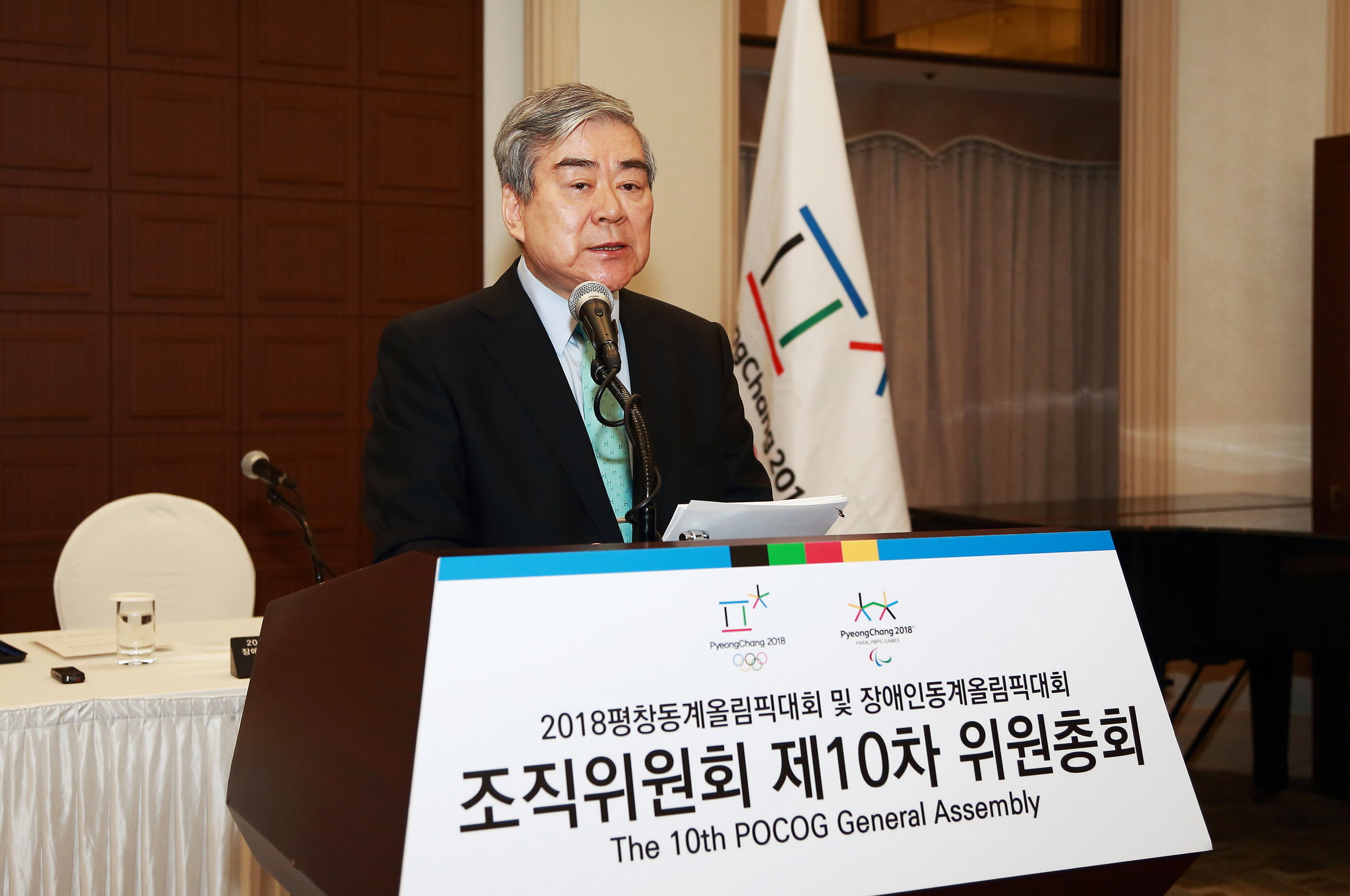In certain circles in South Korea, such things as duty, responsibility, nation and family truly do matter, and matter a great deal. A promise is a promise, and a promise must be kept.
Of course, these things can matter everywhere. All the same, this explains why on Thursday in Seoul, Yang Ho Cho — one of the world’s foremost businessmen, a pivotal figure in a leading Korean family, an advocate for his country — was elected president of the Pyeongchang 2018 Winter Olympic Games organizing committee.
Three years ago, Cho led the winning Pyeongchang 2018 bid. Since then, Jin Sun Kim, the former governor of Gangwon province, where Pyeongchang is located, had served as the organizing committee president.
Kim resigned unexpectedly last week, saying new leadership was needed.
As Gangwon governor, Kim led Pyeongchang’s bids for the 2010 and 2014 Winter Games, which went to Vancouver and Sochi. He served as a special ambassador for the 2018 bid.
The timing and motive behind Kim’s resignation remain unclear; his second term as president was not due to end until October, 2015. No major concerns had been expressed about readiness or preparations for the Pyeongchang Olympics, the first Winter Games to be held in Korea.
Speculation has mounted that Kim resigned under pressure amid concerns over leadership issues, lags in producing needed domestic sponsorship contracts and, perhaps, construction delays.
The South Korean government audit agency announced last week it had conducted a special, weeks-long inquiry into the organizing committee, assessing financing and management. Results are expected within three months.
Cho was the obvious choice to replace Kim.
After all, not only had Cho overseen the 2011 campaign for 2018, it was the way he did it.
Simply put, Cho did a masterful job of orchestrating various constituencies — the levels of government, the sponsors and other business interests, the Korean Olympic Committee and more — as Pyeongchang, with 63 votes, roared to a massive first-round victory over Munich and Annecy, France.
Cho, now 65, is a vice-president of the Korean Olympic Committee. He has been president of the Korea Table Tennis Association since 2008, vice-president of the Asian Table Tennis Union since 2009.
In his business life, he is chairman of Korean Air Lines Co., the country’s largest carrier. The airline’s biggest shareholder is the family-owned Hanjin Group, one of Korea’s most significant conglomerates.
Cho is a graduate of the University of Southern California and Korean Air is in the midst of building what will be a $1-billion, 73-story hotel, office and retail complex — the largest building west of the Mississippi River — in downtown LA. The center, called the Wilshire Grand, is due to open in 2017.
Which leads to a little Korean history, and some perspective and context into — and maybe understanding of — Thursday’s transition.
Though Cho was the obvious choice, initially he did not want the job. He even said so. His business responsibilities — which, in his case, meant his family responsibilities as well — weighed heavily. Beyond the airline and the Wilshire Grand, there was a shipping business, and more.
At the same time, in 2011, at the IOC session in Durban, South Africa, Cho had made a promise to the members of the International Olympic Committee that the 2018 Games would be rock-solid. He had told them that day, "Our vision is clear and it is unique."
As word of Kim’s resignation got around the world, messages came into Cho from the members — saying, in essence, you are the one we know and trust.
Kun Hee Lee, chairman of Samsung since 1987 and an IOC member since 1996, has been ill; Dae Sung Moon, an IOC athlete member since 2008, has been caught up in plagiarism allegations over his doctoral thesis.
If not Cho, who? In Korea, the IOC needs a steady go-between.
With Cho, as those in the Olympic sphere as well as government and the business communities knew, any issues with leadership as well as sponsorship would likely dissipate, and quickly.
If indeed there are venue or construction concerns — because Cho oversaw the bid, he would not have to be brought up to speed with those, either.
So there was the matter of that promise.
And then there was this.
It was 45 years ago that the Korean government asked Choong Hoon Cho, founder of the Hanjin Group, to take over a debt-driven, state-owned Korean Air Lines. Mr. Cho turned down the proposal. Not just once. Twice. He thought it was a sinking ship. Then, though, the president of the country, Chung Hee Park, asked Mr. Cho directly to take over the airline. Mr. Cho reconsidered, accepting out of what would later be thought of — duly recorded in the history books — as devotion to the country through transportation.
Now the Korean government turned to the son, Yang Ho Cho, to take over the 2018 Pyeongchang organizing committee. At first, in an echo of the years gone by, he said no. The government considered its options. It came back to him.
This second time, Cho said yes. Out of devotion to the country through sports.
“I feel heavy responsibility,” Cho told reporters after the election, held at the organizing committee’s 10th general assembly, in downtown Seoul.
According to Associated Press, he also said, “I’ll do my best to achieve a successful hosting of the Olympics based on my experience as the bid committee chairman.”



